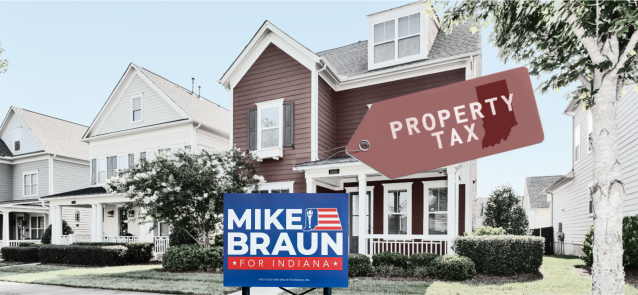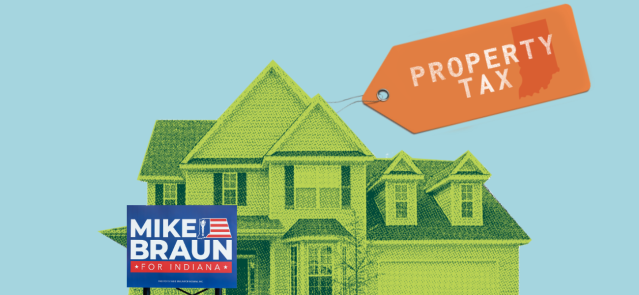Stay ahead of the curve as a political insider with deep policy analysis, daily briefings and policy-shaping tools.
Request a DemoHouse Elections Committee Demands Immediate Action by County Recorders to Uphold Voter Integrity and Enforce Registration Requirements
Arizona for Abortion Access wins lawsuit asking for impartial publicity pamphlet language
Arizona for Abortion Access wins lawsuit asking for impartial publicity pamphlet language
Governor Katie Hobbs Announces Arizona’s Credit Outlook Upgraded to ‘Positive’ By Major Rating Agency
“This report reaffirms that Arizona’s economic position remains strong and our future remains bright,” said Governor Katie Hobbs. “We are building an Arizona that lifts up the middle class, supports smart and sustainable business growth, and leverages the endless opportunities our state has to offer. The results are undeniable, and I will keep working every day to make sure all Arizonans continue to benefit from our booming economy.”
“The S&P upgrade to Arizona’s credit rating outlook is a testament to our state’s strong economic performance,” said Danny Seiden, President and CEO, Arizona Chamber of Commerce and Industry. “Arizona’s population and gross state product are growing, personal incomes are rising, and our reserves are solid. This announcement shows that policy matters and Arizona is on the right track. We’ll continue to work with the Governor and state Legislature to advance policies that promote a healthy and competitive business environment.”
The report also cited Arizona’s notable population growth, strong reserves, low debt burden, and responsible fiscal management as factors for the outlook upgrade.
For more information, see here.
Governor Katie Hobbs Announces Arizona’s Credit Outlook Upgraded to ‘Positive’ By Major Rating Agency
“This report reaffirms that Arizona’s economic position remains strong and our future remains bright,” said Governor Katie Hobbs. “We are building an Arizona that lifts up the middle class, supports smart and sustainable business growth, and leverages the endless opportunities our state has to offer. The results are undeniable, and I will keep working every day to make sure all Arizonans continue to benefit from our booming economy.”
“The S&P upgrade to Arizona’s credit rating outlook is a testament to our state’s strong economic performance,” said Danny Seiden, President and CEO, Arizona Chamber of Commerce and Industry. “Arizona’s population and gross state product are growing, personal incomes are rising, and our reserves are solid. This announcement shows that policy matters and Arizona is on the right track. We’ll continue to work with the Governor and state Legislature to advance policies that promote a healthy and competitive business environment.”
The report also cited Arizona’s notable population growth, strong reserves, low debt burden, and responsible fiscal management as factors for the outlook upgrade.
For more information, see here.
Braun rolls out property tax cut plan, without strategy for revenue replacement
Republican gubernatorial candidate Mike Braun released a property tax plan Friday that his campaign said would result in a 21% average cut in homeowners’ tax bills.
Braun said in a radio interview that his plan would return homestead tax bills to 2021 levels to wipe out increases that have largely come with jumps in property values over the past few years.
But Braun’s proposal immediately raised alarms among county, city and school leaders about the potential loss of hundreds of millions of dollars to support their functions.
The Braun campaign said it had not calculated how much his proposal would reduce property tax revenue.
Braun did not mention replacing that money for schools and local governments, which receive more than 90% of property tax revenue.
He said in an interview on WIBC-FM’s “Kendall and Casey” program that residential property taxes “got completely out of hand” in recent years.
“The No. 1 thing here is to take it back to 2021 levels,” Braun said. “No one was thinking [such a rollback] was going to happen. But that was a windfall, and if we don’t we’re just baselining Biden inflation into revenue generation.”
Impact on taxpayers, local government
Property tax bills for owner-occupied homes increased by statewide averages of 9% in 2021, 9.2% in 2022 and 16.7% in 2023, according to a Legislative Services Agency report.
“Senator Braun hopes that this will start a conversation around delivering effective government services without allowing budget creep and overburdening homeowners,” Josh Kelley, Braun’s senior campaign adviser, said in an email to State Affairs. “He looks forward to having these conversations with the General Assembly and with local government and school stakeholders.”
Homeowner tax payments totaled about $2.9 billion in 2021 and $3.6 billion in 2023, for a potential reduction of some $700 million, according to the Legislative Services Agency report.
Such a revenue drop would be a “shock” to public schools and local governments, said Democratic Rep. Ed DeLaney, a member of the House Ways and Means Committee.
“The proposal that Mike Braun is suggesting puts every police department, fire department, city and county at risk of having a shortfall,” DeLaney told State Affairs.
DeLaney said Braun’s plan “means that he believes that the Republican supermajority has failed to protect taxpayers, at least for these last few years, and so he’s going to ask them to correct that mistake.”
Details from Braun’s proposal
Legislators have wrestled with various proposals in the past few years to stem property tax increases, but nothing has advanced that would have as far-reaching impact as Braun’s proposal.
Key parts of his plan call for:
- Increasing homestead deductions by allowing properties with assessed value below $125,000 to be eligible for the current standard deduction of $48,000, plus 60% supplemental deduction. That 60% deduction would apply to owner-occupied homes with assessed value over $125,000. The Braun campaign said that would result in a 21% reduction in the average homeowner tax bill and 39% reduction in the average tax bill for homes worth $80,000.
- Imposing a cap on tax bill increases at 2% a year for senior citizens, low-income residents and families with children under the age of 18. All other homeowners would see a 3% annual cap. Braun proposed that any increase exceeding the caps first be approved by voters through a local ballot referendum.
- Requiring that all property tax-related referendums take place during November general elections, eliminating the current option of those votes being held during primary or special elections. A similar proposal failed in the 2024 legislative session as opponents argued it went against the concept of local control and would give most school districts the opportunity to propose a referendum only every two years.
- Requiring a referendum’s ballot language to include the total amount to be raised by the tax increase and data regarding the referendum’s impact on the median home’s property tax bill.
Braun repeatedly said during the radio interview that his proposal would reduce the tax bills for homeowners to the amount they paid in 2021.
“This is going to take your tax bills back to that level,” Braun said.
However, the plan outline released by Braun’s campaign included no such statement.
Kelley said Braun’s aim was to “reset tax bills to 2021 levels.”
“As he studied the issue, it became clear that any attempt to roll back assessed value would face legal challenges and possibly cause market disruptions, but increasing the amount of homestead deduction was a clear and simple way to achieve the goal of resetting the average tax bill to 2021 levels,” Kelley said.
Democratic gubernatorial candidate Jennifer McCormick responded to Braun’s plan with a statement pointing out his vote as an Indiana House member in 2015 supporting a bill that would have allowed counties to impose property tax replacement fees for parcels with tax deductions or credits reducing liability below $200. That carried an estimated impact of up to $38.6 million a year in additional taxes.
“Hoosiers are sick and tired of politicians who will say anything to get elected,” McCormick said in a statement. “Mike Braun voted for higher Hoosier property taxes when he had the chance and is now only talking about a tax cut because he’s another politician Hoosiers are sick of.”
Prospects uncertain for Braun’s plan
Braun said the property tax issue would be “priority one” if he is elected governor and he had already discussed his plans with legislators, whom he did not identify.
House and Senate Republican leaders did not answer questions Friday from State Affairs about Braun’s proposal nor did any issue statements about the plan.
The Legislature’s State and Local Tax Review Task Force has topics assigned to it this year that include possibly capping the amount of operating referendum tax that school districts could levy, studying school districts’ use of debt and making more local government projects subject to petition remonstrances.
Task force Chairman Jeff Thompson, R-Lizton, told State Affairs in May that local government officials are in control of property taxes.
“Yes, we’re talking about some reforms and what things we can do to put guardrails [around property taxes],” said Thompson, chairman of the House Ways and Means Committee. “But the ultimate responsibility lies with local government.”
Tom Davies is a Statehouse reporter for State Affairs Pro Indiana. Reach him at [email protected] or on X at @TomDaviesIND.
4 things to know about Braun’s property tax proposal
Sen. Mike Braun, the Republican candidate for Indiana’s governor, released a plan for overhauling property taxes Friday morning that would impact millions of Hoosiers, Indiana schools and local governments.
“Nothing is more important than ensuring Hoosiers can afford to live in their homes without being overburdened by rising property taxes driven by rapid inflation in home values,” said Braun, who is seen as the favorite to win election in Republican-dominated Indiana.
To accomplish his goal, Braun would have to work with legislative leaders, who have signaled their own intentions to look at reducing property taxes in the coming year.
The plan touches on property tax limits, deductions, transparency measures and changes to how tax referendums are conducted. Here are four things to know about property taxes and Braun’s proposal.
Continue reading “4 things to know about Braun’s property tax proposal”Bureau of Motor Vehicles looks to add new rules to Indiana’s driving test
The Bureau of Motor Vehicles wants to amend Indiana’s driving skills test, putting “existing practice” into administrative rule.
Indiana already fails drivers who speed, disobey traffic signals and don’t wear a seatbelt, among other violations. Yet the BMV is looking to make the state’s driving skills test more stringent.
A proposed rule amendment looks to add two offenses that would automatically result in failing the test and a list of 22 instances that could do the same if committed enough times.
“The BMV determined that its current practices related to the administration of the driver’s skills exam should be codified,” Melissa Hook, the BMV’s communications and media relations director, told State Affairs in an email.
Under the proposed rule amendment, drivers who fail to stop completely at a stop sign or pass a school bus with its stop arm extended would automatically fail the test.
In addition, drivers would fail the test if on at least 11 occasions they do any of the following:
Continue reading “Bureau of Motor Vehicles looks to add new rules to Indiana’s driving test”Court grants temporary restraining order in favor of Overland Park group in PAC case
An Overland Park advocacy group isn’t a PAC, at least not under a temporary restraining order granted by a Kansas federal judge.
U.S. District Court Judge Daniel Crabtree on Wednesday granted the order at the request of Fresh Vision OP, a nonprofit with a stated goal to “maintain the quality of life and unique character of Overland Park through thoughtful and fiscally responsible spending of our tax dollars.”
The order blocks the Kansas Governmental Ethics Commission from enforcing a part of the state’s Campaign Finance Act that labeled and regulated the group as a political action committee.
Fresh Vision came under scrutiny from state regulators after beginning advocacy around local government races, including endorsing Overland Park City Councilman Faris Farassati’s mayoral campaign.
Founder James Muir told the Legislature in 2023 that the ethics commission labeled Fresh Vision a political committee following a complaint about the nonprofit’s political activities.
“We are a group of concerned neighbors who invested a little more than $3,000 to maintain our quality of life in South Overland Park,” Muir said in written testimony. “We are now the poster child of what needs to change with regards to the Kansas Ethics Commission.”
The Institute for Free Speech filed the lawsuit in June on behalf of the plaintiffs, arguing the act’s definition of “political committee” was overly broad and unconstitutional. The institute is best known for its work representing the plaintiffs in SpeechNow.org v. Federal Election Commission, the 2010 U.S. Supreme Court case that legalized independent expenditure-only committees, or super PACs.
The statute defines a political committee as a group where supporting or opposing a political candidate is a major purpose.
“But the First Amendment only allows the government to regulate groups with the major purpose of expressly advocating for candidates,” Fresh Vision’s attorneys argued in the lawsuit. They cited precedent from previous campaign finance cases, including the U.S. Supreme Court’s 1976 decision in Buckley v. Valeo.
Crabtree agreed that the plaintiffs’ arguments were likely to succeed. He granted a limited temporary injunction, pending a trial scheduled for Sept. 17.
“Instead, defendants [the ethics commission] may enforce the above enumerated statutes and regulation only based on a candidate-specific determination that express advocacy is the major purpose of Fresh Vision,” Crabtree wrote in the order.
The Institute for Free Speech said after the ruling that the temporary order will allow Fresh Vision to resume its activities without fear of being regulated as a PAC. Muir, who helped create Fresh Vision OP in 2021, could not be reached for comment through the group’s legal team.
“The court applied existing precedent that bars the imposition of burdensome political committee requirements on groups that only occasionally engage in express advocacy,” institute attorney Charles “Chip” Miller, a contributor to The Federalist Society, said in a statement. “Those requirements chill and potentially punish protected political speech. We look forward to expanding this ruling at the next hearing to protect all similar grassroots organizations in Kansas.”
Brett Stover is a Statehouse reporter at State Affairs Pro Kansas/Hawver’s Capitol Report. Reach him at [email protected] or on X @BrettStoverKS.




